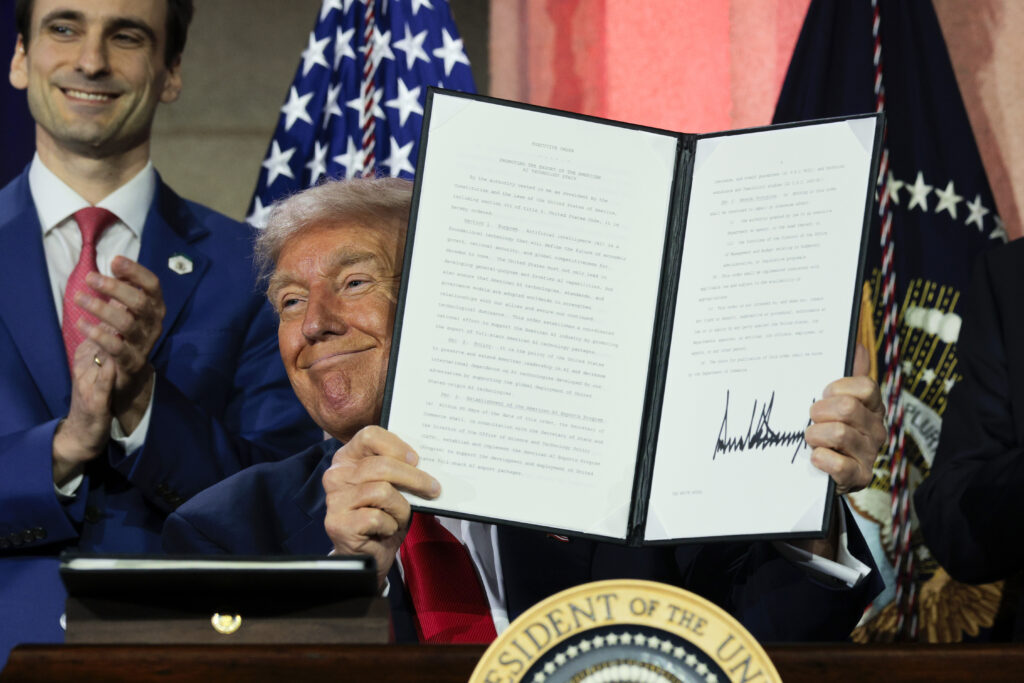Appeals Court Upholds Nationwide Block on Trump’s Birthright Citizenship Order

A federal appeals court upheld a lower court’s broad block on President Donald Trump’s anti-birthright-citizenship executive order, saying it contradicts the plain language of the Constitution.
The ruling from a three-judge panel of the 9th U.S. Circuit Court of Appeals marks the first time an appeals court has weighed in on Trump’s executive order, moving it closer to a full constitutional review by the Supreme Court.
The president’s order aims to deny citizenship to children who are born on U.S. soil to parents who are in the country illegally or temporarily. His order runs directly counter to the 14th Amendment, which states that everyone born on U.S. territory is a citizen, regardless of their descent.
“We conclude that the Executive Order is invalid because it contradicts the plain language of the Fourteenth Amendment’s grant of citizenship to ‘all persons born in the United States and subject to the jurisdiction thereof,’” Circuit Judge Ronald Gould, an appointee of former President Bill Clinton, wrote Wednesday for the 2-1 majority.
“For that reason, we conclude that Plaintiffs are likely to succeed on the merits of their claim that the Executive Order violates the Citizenship Clause by denying citizenship to children who are born in the United States,” Gould added.
Circuit Judge Patrick Bumatay, another Clinton appointee, partially concurred and partially dissented to Gould’s opinion, while Circuit Judge Michael Hawkins, who was appointed by Trump, voted against sustaining the block.
The panel’s decision comes after the Supreme Court, through a separate challenge to Trump’s order, curtailed federal judges’ ability to issue nationwide injunctions. That decision threw District Judge John C. Coughenour’s broad injunction against Trump’s order into question, as it applied nationwide.
The 9th Circuit ruled Wednesday that Coughenour’s expansive order, which was the first to pause Trump’s order, likely falls under one of the exceptions the Supreme Court made for issuing injunctions that grant broad relief.
SCOTUS left the door open for injunctions that provide relief on a national basis by coincidence, specifically in cases brought by states. The case before Coughenour was brought by four states who argued Trump’s order would inflict economic harm on them by causing them to lose out on federal funding.
“We conclude that the district court did not abuse its discretion in issuing a universal injunction in order to give the States complete relief. States’ residents may give birth in a non-party state, and individuals subject to the Executive Order from non-party states will inevitably move to the States,” Gould wrote.
The 9th Circuit’s ruling comes days after another district court blocked Trump’s order after certifying a nationwide class of children whose citizenship would be threatened by it — another avenue the Supreme Court left open for injunctions that have a nationwide effect.